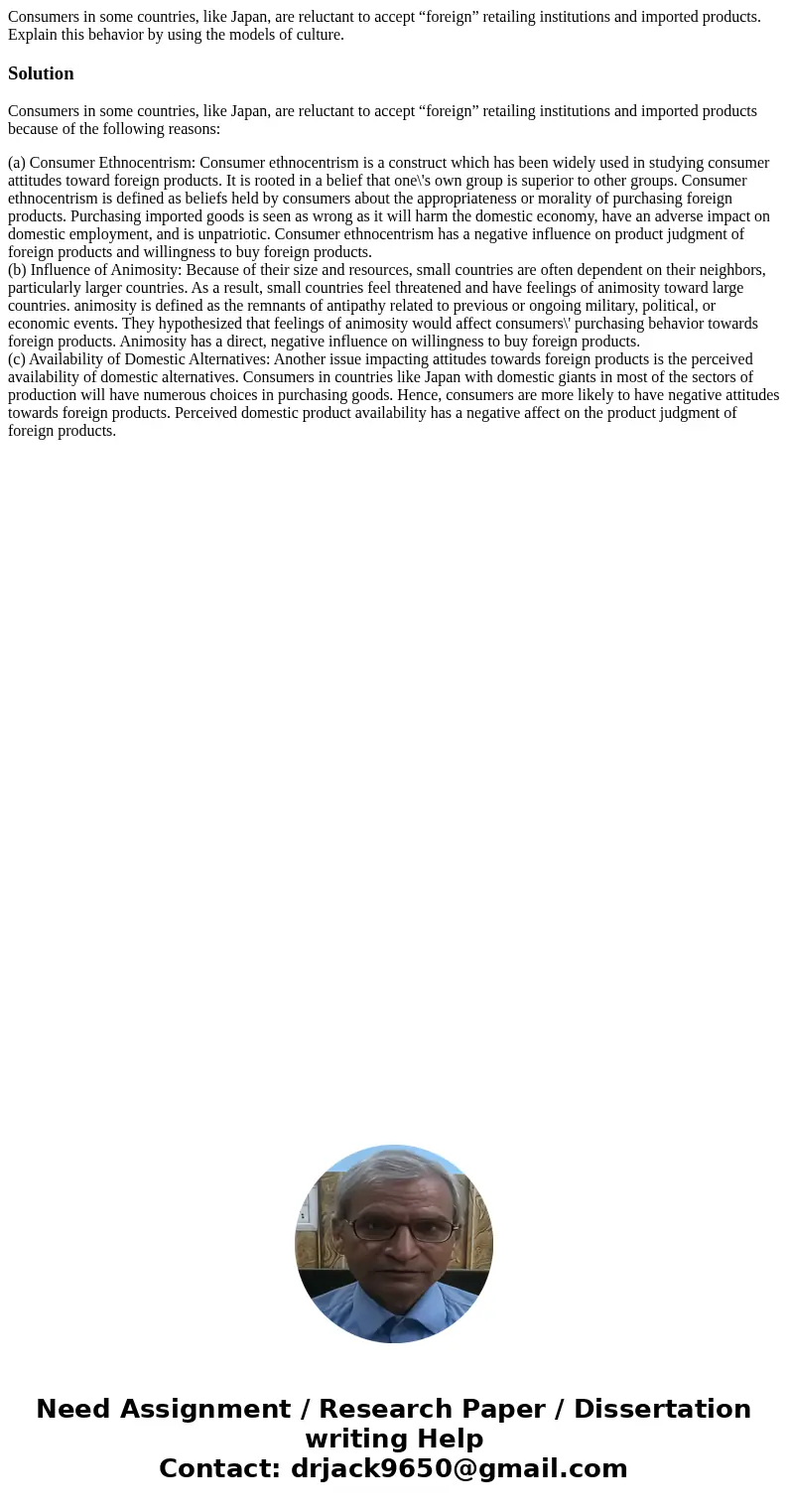Consumers in some countries like Japan are reluctant to acce
Consumers in some countries, like Japan, are reluctant to accept “foreign” retailing institutions and imported products. Explain this behavior by using the models of culture.
Solution
Consumers in some countries, like Japan, are reluctant to accept “foreign” retailing institutions and imported products because of the following reasons:
(a) Consumer Ethnocentrism: Consumer ethnocentrism is a construct which has been widely used in studying consumer attitudes toward foreign products. It is rooted in a belief that one\'s own group is superior to other groups. Consumer ethnocentrism is defined as beliefs held by consumers about the appropriateness or morality of purchasing foreign products. Purchasing imported goods is seen as wrong as it will harm the domestic economy, have an adverse impact on domestic employment, and is unpatriotic. Consumer ethnocentrism has a negative influence on product judgment of foreign products and willingness to buy foreign products.
(b) Influence of Animosity: Because of their size and resources, small countries are often dependent on their neighbors, particularly larger countries. As a result, small countries feel threatened and have feelings of animosity toward large countries. animosity is defined as the remnants of antipathy related to previous or ongoing military, political, or economic events. They hypothesized that feelings of animosity would affect consumers\' purchasing behavior towards foreign products. Animosity has a direct, negative influence on willingness to buy foreign products.
(c) Availability of Domestic Alternatives: Another issue impacting attitudes towards foreign products is the perceived availability of domestic alternatives. Consumers in countries like Japan with domestic giants in most of the sectors of production will have numerous choices in purchasing goods. Hence, consumers are more likely to have negative attitudes towards foreign products. Perceived domestic product availability has a negative affect on the product judgment of foreign products.

 Homework Sourse
Homework Sourse